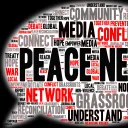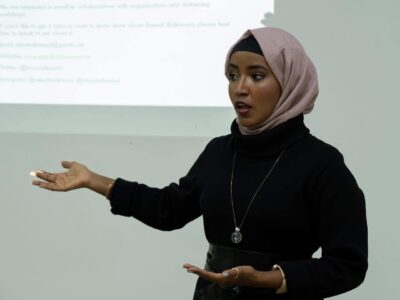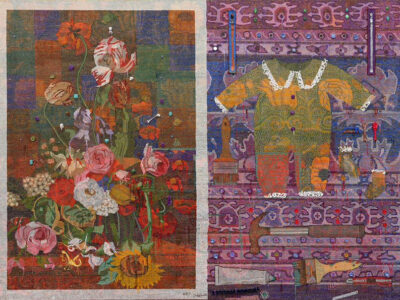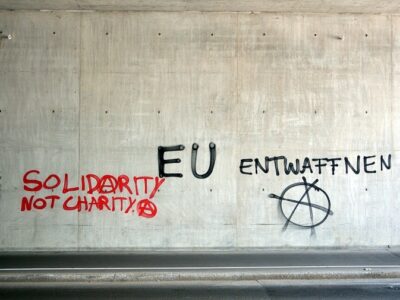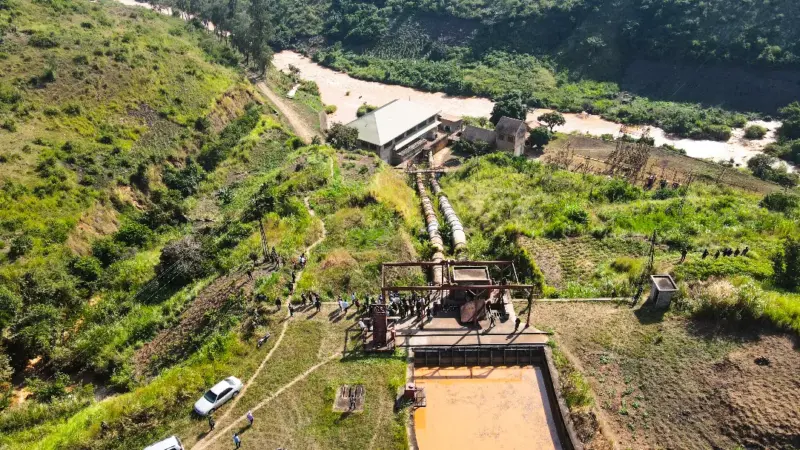
The Kivu-Kinshasa green corridor in the DRC. Image from Anicet Kimonyo. Used with permission.
This article by Anicet Kimonyo was originally published by Peace News Network on October 29, 2025. An edited version is republished on Global Voices as part of a media partnership agreement.
Armed conflicts in the eastern Democratic Republic of Congo (DRC) are fueling poverty and accelerating environmental degradation.
In North Kivu province, home to Virunga National Park, one of the oldest in Africa, nearly 50 percent of the park’s territory is now under the control of armed groups, according to an assessment by the Provincial Directorate of North Kivu of the Congolese Institute for the Conservation of Nature (ICCN) from April 2025. These groups include the Alliance Fleuve Congo (AFC)-M23 rebels, Islamist groups, and various smaller local militias, as well as Democratic Forces for the Liberation of Rwanda (FDLR), which has members who took part in the Rwanda Genocide in 1994.
This armed presence around the park deprives the green economy of an estimated USD 30 million a year in revenue, diverted to rebel groups, according to the report. This perpetuates a cycle of violence to the detriment of biodiversity and local development.
The DRC has officially launched, by decree, the “Kivu-Kinshasa Green Corridor” (CVKK), a colossal project that aims to combine reforestation, economic development, and the stabilization of conflict-ravaged regions. The initiative, presented by authorities as a major contribution to the fight against climate change, will nevertheless require the government to overcome numerous structural and political challenges.
Signed on January 15, 2025, by Prime Minister Judith Suminwa, Decree No. 25/01 gives substance to one of the largest greening initiatives ever conceived in Central Africa. Spanning nearly 550,000 square kilometers, including 285,000 square kilometers of primary forests and 60,000 square kilometers of peatlands, the CVKK aims to transform areas weakened by decades of violence into hubs of sustainable growth. Emmanuel de Mérode, director of the ICCN, says:
The CVKK project is considered one of the largest initiatives [in the world] on the climate issue. The Congo is providing good news, and this will continue to be noticed.
In addition to protecting the Congo Basin, described as “the world’s largest tropical forest carbon sink,” the corridor is expected to enable the annual transfer of 1 million tons of food from the Kivus to Kinshasa. This will help to feed people impacted by conflict, primarily, and the entire country, considering the agricultural potential of this Green Corridor area. A dedicated fund will be created to develop businesses along the route in renewable energy, agriculture, and logistics. The government estimates the project will require at least USD 1 billion in financing over the next three to four years.
The CVKK is structured around several pillars: sustainable agriculture, ecotourism, community forestry, and ecosystem restoration. The stated objective is to create hundreds of thousands of “green” jobs, thereby providing legal alternatives to poaching and illegal resource exploitation. Emmanuel de Mérode explains:
The corridor provides economic benefits that do not depend on forest destruction, but on sustainable production methods. Hundreds of thousands of jobs [will be] created thanks to the preservation of species and forests. The communities themselves become conservation agents.
In Bas-Uélé, forest administrator Justin Tshipopo welcomes an “opportunity to strengthen community forestry.” He emphasizes the need to take traditional knowledge into account. He said:
Communities have preserved their forests for centuries. These practices must not be forgotten.
He stresses that the corridor must become a concrete instrument of development in fragile territories, capable of generating economic opportunities and strengthening social cohesion.
Long-term success will depend on the authorities’ ability to sustainably involve local populations, integrate their ancestral knowledge, and ensure impeccable governance. The Kivu-Kinshasa Green Corridor thus presents itself as a crucial test for the DRC’s ecological and economic transition, a challenge worthy of its immense natural resources.
While the ambitions are lauded, local activists are also demanding inclusive and transparent implementation. Fanny Minesi, representing the wildlife conservation NGO Friends of Bonobos of Congo (ABC), warns against a purely technocratic approach to the project. She asserts:
Our concern is to ensure that communities are not only informed, but also that they consent to the projects and become active participants. We must ensure that projects are not designed without the communities, and that the private sector, often preoccupied with profit, is not the only one guiding the decisions.
The success of the CVKK depends on close coordination between the government, conservation agencies, the private sector, and communities. However, land tensions, weak infrastructure, and historical mistrust persist. Some local populations are wary of the project, as they believe the government wants to take their land.
Pilot initiatives in the eastern DRC and Tshopo, however, are showing encouraging results, with a measurable reduction in local violence by armed groups against civilians and improved protection of Virunga National Park. Officials say the corridor will create jobs for hundreds of thousands of people, including young people, and will help them access more economic options so they are not pressured to join armed groups due to poverty.
Already, the DRC launched Climate Week on Monday, October 27, with the aim of bringing together stakeholders in the climate sector to jointly reflect on the issues. The Congolese Minister of the Environment and Climate Economy, Marie Nyange Ndambo, said during a press conference:
Without the DRC, there are no sustainable solutions to the global climate crisis, which we have not created elsewhere.
Continuing her address to the participants of the Congolese National Climate Week, Ndambo clarified that through the Congolese National Climate Week, the DRC aims to unite the voices of civil society, indigenous peoples, and other local and national stakeholders to prepare for COP30, which will be held in Belem, Brazil, starting November 1o, with a strong and credible conviction that “reflects our priorities and realities, so that at Belem, the Congo and the Congolese people speak with one voice and affirm that the DRC is ready to assume its role as a climate leader.” Nyange added
We want every Congolese to understand that the climate is not a distant issue, it affects our daily realities and therefore protecting the environment is protecting our future.

